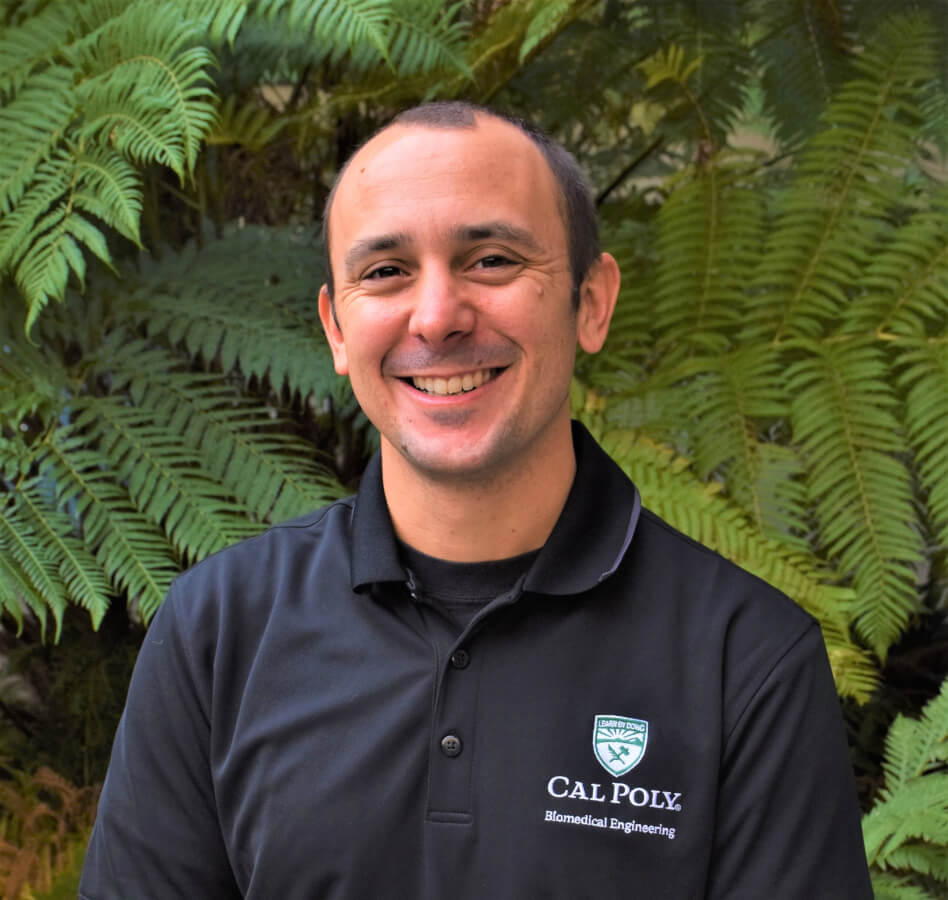The Lockheed Endowed Professorship supports the professional growth and development of T/TT faculty by providing research/scholarship funding in support of the teacher-scholar model. It is intended to develop and foster long-term relationships between faculty and collaborators with an emphasis on those external to the university. The Lockheed Endowed Professorship invests in the faculty members for a two-year period and should be considered to be seed funding to support the development of research projects which can lead to future external support by industry or funding agencies.
The College of Engineering is excited to announce the next three Lockheed Endowed Professors!

Dr. Mohammad Ghamari
Advancing Diabetes Care: A Non-Invasive Blood Glucose Monitoring System Powered by Embedded AI
Diabetes is a global health crisis affecting over 537 million individuals worldwide, with prevalence expected to rise significantly in the coming decades. Effective disease management requires frequent blood glucose monitoring to prevent complications such as neuropathy, retinopathy, and cardiovascular disease. While traditional invasive methods, such as finger-prick tests, provide accurate readings, they are impractical for continuous monitoring due to pain, inconvenience, and the recurring cost of test strips, making adherence challenging for many patients. This project seeks to develop an innovative, non-invasive blood glucose monitoring system that integrates near infrared (NIR) photoplethysmography (PPG), artificial intelligence (AI), and advanced data analytics. The system will utilize NIR spectroscopy to detect subtle glucose-induced variations in tissue optical absorption, enabling continuous, painless, and real-time glucose estimation. AI-driven predictive models will enhance measurement accuracy by compensating for individual physiological differences, skin pigmentation variability, and ambient light interference. This novel approach aims to overcome the limitations of traditional invasive methods, reducing discomfort, lowering costs, and improving accessibility. By providing reliable, user-friendly glucose monitoring, the proposed system has the potential to transform diabetes management, enhance patient adherence, enable early complication detection, and improve overall quality of life for people.

Dr. Ben Hawkins
Novel ISHBT Biosensor at the Cal Poly Nanoscale Education, Science, and Technology Center
The proposed research will demonstrate a novel semiconductor biosensor – an ion-selective heterojunction bipolar transistor (ISHBT) sensor for the detection of specific electrolytes in the blood stream using the reverse iontophoresis effect. Generally, semiconductor fabrication processes deposit or add material uniformly across the entire surface of a silicon wafer. Deposited material can be electrically conductive (e.g., metals) or insulating (e.g., silicon nitride). Different materials require different deposition tools and conditions. “Patterning” of features – i.e., the creation of micro-scale features – is achieved using a “mask” with the desired pattern that can be transferred to a light-sensitive substrate, photoresist. After transfer of the mask pattern to photoresist in the photolithography step, material can be selectively removed using chemical etchants (e.g., gold etchant to remove gold not covered by photoresist) or plasma-based etching (e.g., reactive-ion etching of silicon using oxygen-SF6 plasma). Since each material deposition and removal process requires different machines and conditions, the development process for the ISHBT sensor will include extensive validation. We will take advantage of this opportunity to add four new processes in the Microfab that will extend the capabilities of the facility and create opportunities for integration with new and existing coursework in EE, ME, and Physics, as well as external collaborations.

Dr. Kun Hua
FED-IoV: Secure and Robust Internet of Vehicles Intrusion Detection with Federated Learning
This research aims to strengthen the current collaboration and establish a long-term relationship with the Cyber Innovation group, Computer Science department of San Diego State University (SDSU) through joint research on the secure and robust internet of vehicles (IoV) intrusion detection system with federated learning. This research will begin with the collection of sufficient network traffic data packets, followed by their analysis to extract feature vectors, which serve as inputs for the classification model. Through the training of federated learning models, an intrusion detection classifier will be developed, achieving significantly higher detection accuracy compared to traditional signature-based and machine learning-based approaches. Both the ethical hacking and proposed solutions testing will be carried out on the isolated server at Cal Poly Building 192 and SDSU Cyber Innovation Lab. The experimental validations will be completed in the Advanced Communication Lab of Cal Poly Building 20. The requested funding will be utilized to support the graduate and undergraduate student involvement, and the dissemination of research findings through peer-reviewed publications and conference presentations. This endeavor not only contributes significantly to IoV systems but also fosters a collaborative, inclusive community of faculty, staff, and students, working together for a positive, real-world impact in computing applications.


